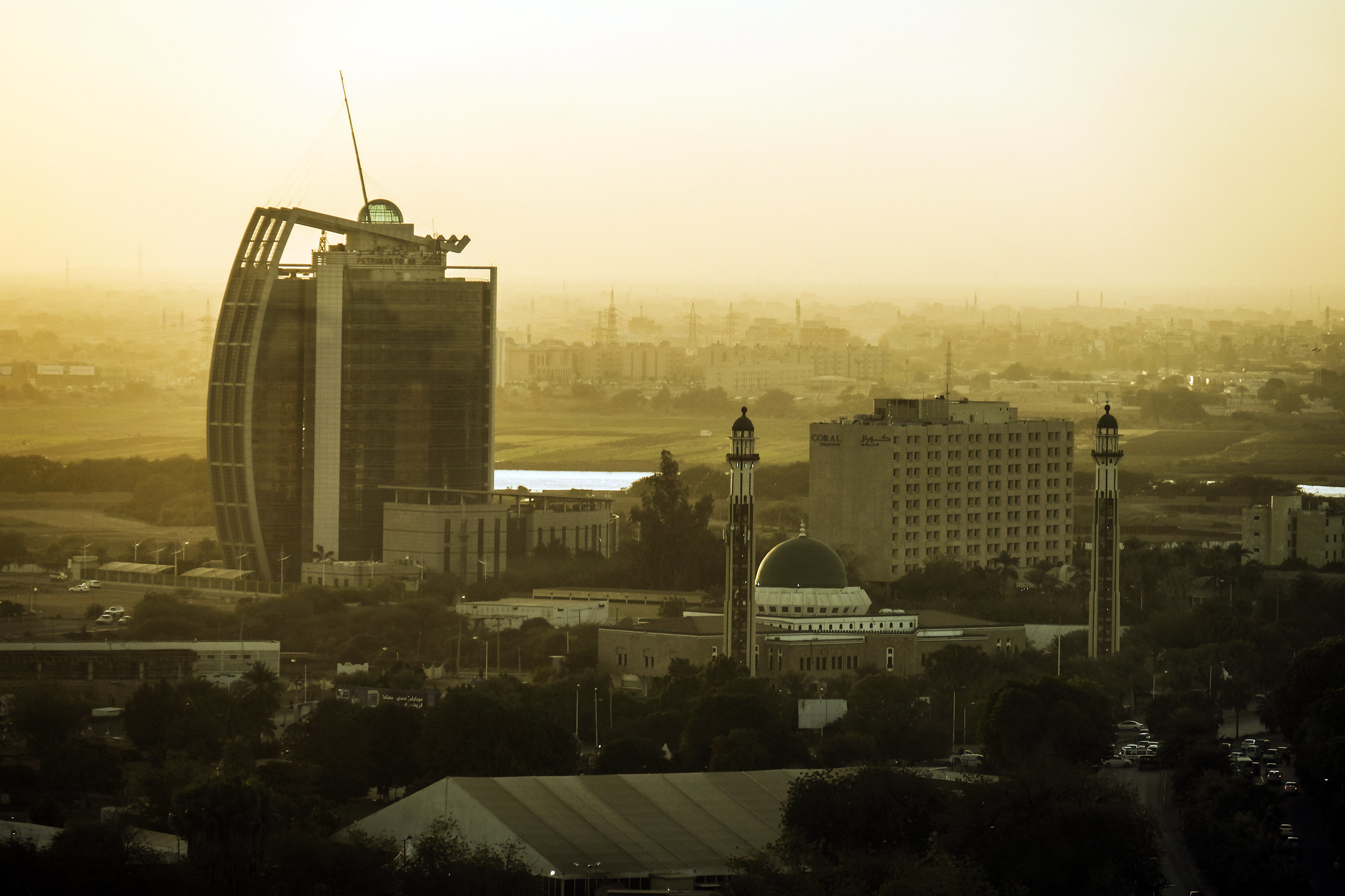Neighbouring countries can be dangerous for refugees: still within reach of the long arm of dictators and scapegoated for political gains by host governments. The experience of Eritreans in Sudan and Ethiopia is a prime example. Both Sudan and Ethiopia host significant numbers of Eritrean refugees, but Yohannes Woldemariam writes, that leaves them at the mercy of equally unstable governments.
Even as Westerners, rich ex-pats, and international diplomatic staff scrambled to leave Sudan, Eritreans who fled a vicious dictatorship are trapped in Khartoum, unable to safely go home they are also unable to leave.
Eritrean dictator Isaias Afwerki has welcomed Sudanese refugees and others fleeing the violence in Khartoum. Isaias said no papers, visas, or passports are required for anyone coming from Sudan. He said ‘we’ can share whatever we have including breaking bread in ‘our’ homes. Most families in Eritrea struggle to sustain themselves. Eritreans, except Isaias’s cronies, live on handouts from their relatives in the diaspora or are begging in the streets. Isaias’s welcoming attitude does not extend to NGOs, which he has blocked from opening shops in the name of assisting refugees.
Meanwhile, affluent ex-pats, including the Chinese, who found Eritrea easier to reach as a conduit for escape, have been spotted in Asmara receiving luxurious hospitality before boarding planes to their respective destinations of safety.
In Sudan
The situation of Eritreans trapped in Sudan has not received the same publicity as that of other refugees in Khartoum. There are approximately 126,000 registered Eritrean refugees in the country. Even before the current crisis, Eritreans were arbitrarily rounded up becoming prey to gangsters, people smugglers, and robbers. Sometimes the pretext of expired ID cards was used as an excuse to harass, but the office for renewal of permits in Khartoum has been closed for a year.
Some who tried to flee to the eastern town of Kessela (which borders Eritrea) have been kidnapped by Eritrean security forces and have not been heard from since. Most Eritreans in Khartoum find themselves between a rock and a hard place. If they stay in Khartoum, they will suffer all the consequences of being caught in a city at war and if they go back to Eritrea, they don’t know what the regime will do to them.
There was a similar situation in Tigray when Eritrean refugees came under attack from Eritrean security operatives for fleeing from Isaias. The Eritrean security herded many of them back to Eritrea, where no one knows what happened to them. They were also victimized by Tigrean forces in a misplaced anger, just for being Eritreans.
As Human Rights Watch’s Laetitia Bader indicates, “Eritrean refugees have been attacked both by the very forces they fled back home and by Tigrayan fighters….The horrific killings, rapes, and looting against Eritrean refugees in Tigray are evident war crimes.” Eritrean refugees have also been scapegoated by Tigrayans who have suffered abuses by Eritrean soldiers. And they have been targeted by those wanting to attack Tigrayans, as many speak Tigrinya have been mistaken for Tigrayan Ethiopians.
While other governments are trying to rescue their citizens, Eritreans have no one. Some who made it by plane to Juba in South Sudan have been told by airport security that they are not allowed to enter the country because the Eritrean government has refused to take responsibility for them. The same scenario is re-enacted in Metema, an Ethiopian border town: everyone is allowed in but Eritreans.
Out of desperation, Eritreans have been trekking across several countries in all directions without any documents and have fallen victim to criminality. There is a long history of Eritrean refugees being kidnapped and handed over to an Egyptian ring of Bedouin criminals, who harvest their organs for sale on the international black market.
Pawns in a political game
There have been indications that all is not well between Isaias and Ethiopia’s prime minister Abiy Ahmed since the Pretoria agreement brought an end to the war in Tigray. Isaias has been unusually engaged lately, joining the Intergovernmental Authority on Development, meeting with William Ruto of Kenya, holding press conferences in Asmara, visiting China, and inviting Russia to use his country’s ports and military bases. It appears he is feeling vulnerable and is seeking saviours.
One of the effects of the agreement has been to shift public opinion in Ethiopia against Eritreans who fled the Isaias tyranny. Political alliances in Ethiopia are changing rapidly as ethnic absolutism has reached feverish levels.
The much-feared ripple effect from this is the victimisation and scapegoating of Eritreans. Anti-Eritrean sentiment in Ethiopia is growing and rumours that Eritrean spies are omnipresent in Ethiopia are being exploited for short-term political gains.
There are fears of a repeat of the tragedy committed against Eritreans during the 1998-2000 war. Around 70,000 Eritreans were expelled after their life savings and livelihoods were confiscated by operatives of The Tigrayan People’s Liberation Front. Most of these Eritreans had never been to Eritrea until they found themselves deported.
Most Eritrean refugees will never voluntarily return to Eritrea under the present circumstances. Without a serious international commitment to dramatically increase third-country resettlement, refugees will continue to be at the political and security whims of neighbouring countries.
Photo credit: EU Civil Protection and Humanitarian Aid used with permission CC BY-NC-ND 2.0






A much-needed, crucial analysis of the Eritrean refugee tragedy. Woldemariam should be a UN consultant.